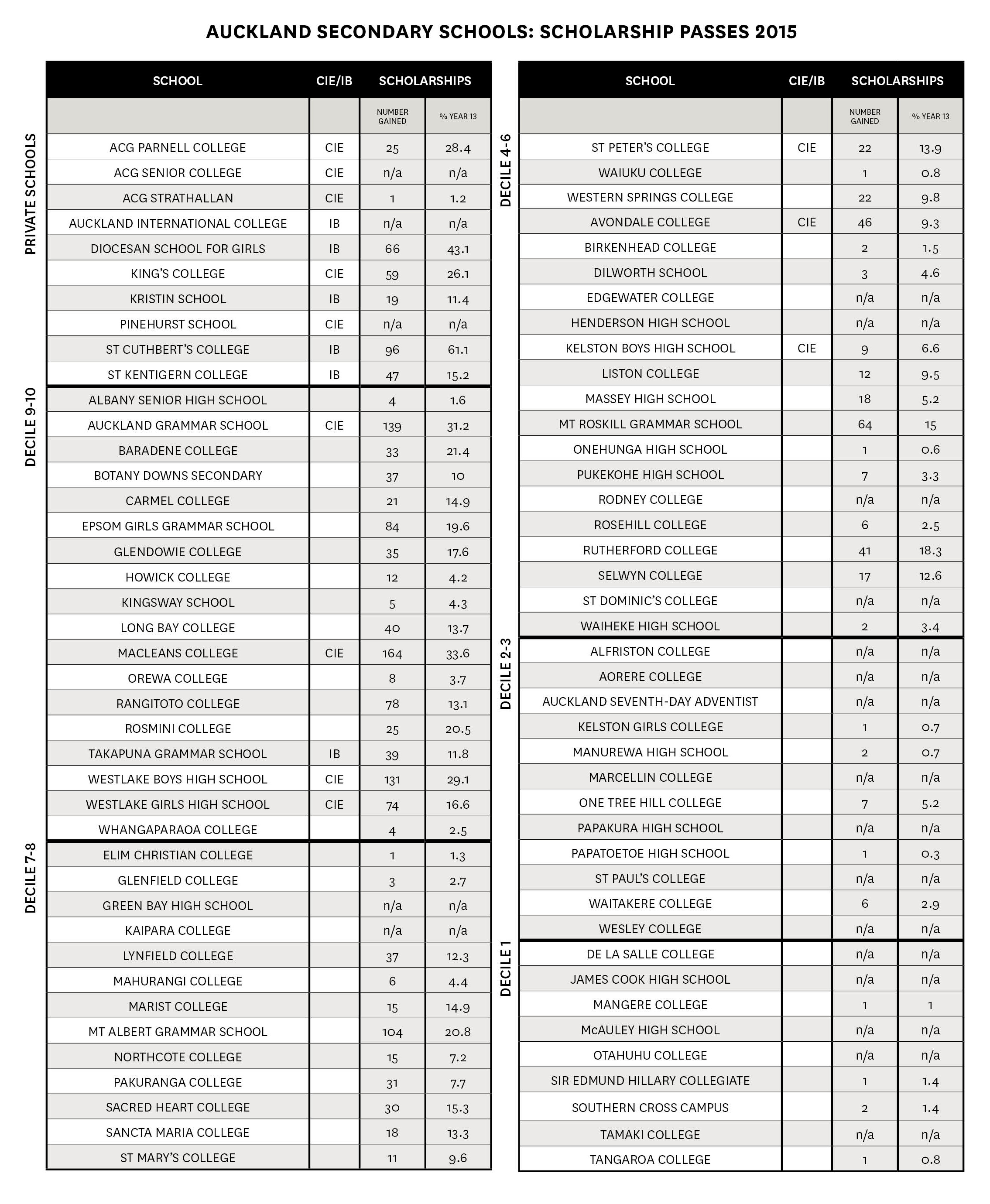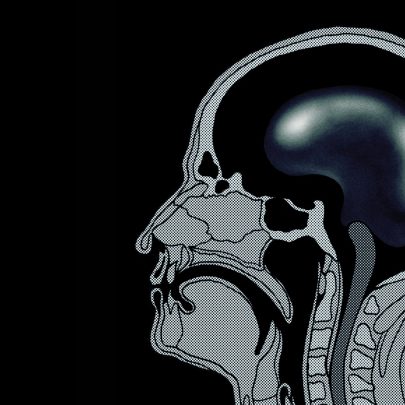Jul 28, 2016 Schools
Measuring elite achievement in secondary schools.
For table of Scholarship passes in Auckland secondary schools, scroll down.
By Brian Ng.
I’m sitting in Michael Walden’s Scholarship calculus class at Mt Albert Grammar School, listening to him tell his students about the time he tried to pick up his friends at Charles de Gaulle Airport in Paris. There’s not a lot of calculus in the story, but the students listen to every word, because they like him and they know he’s going to do good things for them.
MAGS, a decile 7 school, does well at Scholarship. In numerical terms, its 104 passes last year made it the fifth-most successful school in the country, although with 2700 students, it’s also one of the biggest. It does especially well in calculus, and a good part of that is due to the quality of teachers like Walden.
The exams are additional to the normal workload and are entirely voluntary. The timetable for them dovetails with NCEA, but students from schools doing Cambridge or IB frequently sit Scholarship, too. Passing is hard: the results are scaled to limit the pass number to around three per cent of students enrolled in each subject at NCEA level 3.
“We know from experience that students who do well in either NCEA or IB get accepted to overseas universities.”
Passing is also prestigious, especially at a school like MAGS: the National Academics Board in the school hall lists all students who gain a Scholarship in three or more subjects. Headmaster Patrick Drumm says they have a culture of aiming for multiple scholarships.
The money isn’t bad either. You win $500 for a single subject pass; more for multiple passes and coming first in a subject. The top 5-10 students nationally win Premier Scholarships, which come with an award of $10,000 annually for three years.
Does Scholarship help you get into courses, here or overseas, or help you with employers? The answer is yes, in the sense that any record of high achievement looks good on a CV. But New Zealand’s official assessment system, NCEA, is understood and admired by universities here and overseas, and students with excellence endorsements in NCEA are well placed to gain acceptance into “elite” courses and institutions.
IB and Cambridge are also well recognised, but there’s little evidence they confer special advantages. “We offer IB and NCEA,” says Diocesan principal Heather McRae, “and we know from experience that students who do well in either get accepted to overseas universities. Endorsed NCEA stands up very well.”
Scholarship won’t guarantee you that plumb spot at Melbourne Uni, although if you gain multiple Outstanding Scholarships or, even better, become a Premier Scholar, you can expect to be looked upon with great interest.
However, Scholarship does have another value. Because it traverses the different exam systems, it provides a useful comparative guide across those systems to how well schools are geared to elite academic achievement. If that could be relevant to your child, you’ll want to study the table opposite and ask prospective schools how they go about fostering the elite academic talent.
At MAGS, like many schools, they stream from Year 9 and have accelerant classes. What sets their mathematics courses apart, however, is extreme streaming: the top students sit NCEA level 1 maths in Year 9, and in Year 11 some of them opt into a Year 13 Scholarship calculus class. These classes aim to finish the level 3 curriculum by week two of the third term, before intensive Scholarship training.
Of course, students can choose to opt out of this rigorous approach, and those who have not been in these streamed classes are more than welcome to sit Scholarship.
Most schools take a different approach, some holding voluntary weekly tutorials out of school hours, others leaving students to their own devices.

Guide to the table
We show the number of Scholarships or Outstanding Scholarships gained in 2015 and also the percentage of the Year 13 roll on July 1 that figure represents. In many cases, individual students gained a Scholarship in more than one subject. Some students sit the exam before Year 13 but the number is not statistically significant. Listed alphabetically within decile groups.
n/a Not applicable: either the school does not offer Scholarship, or no students chose to sit Scholarship in 2015.
Data from the New Zealand Qualifications Authority: nzqa.govt.nz





